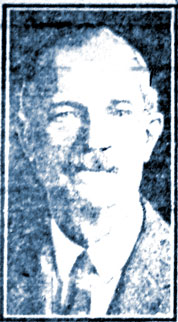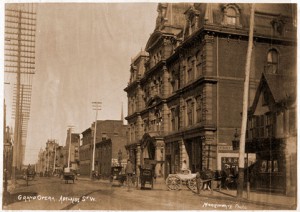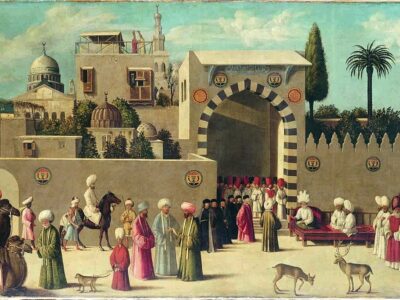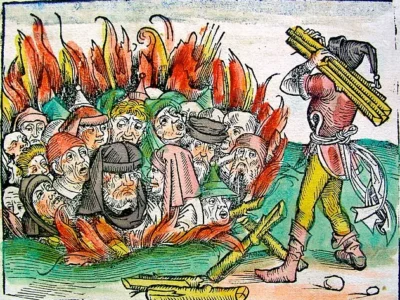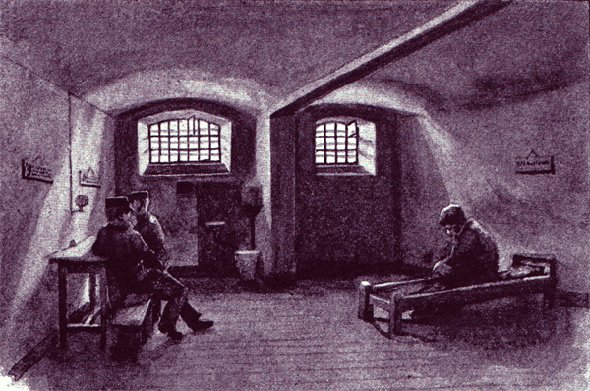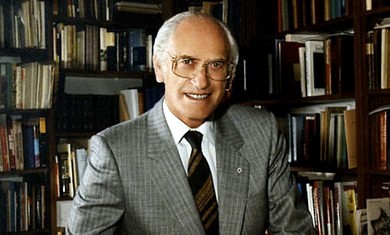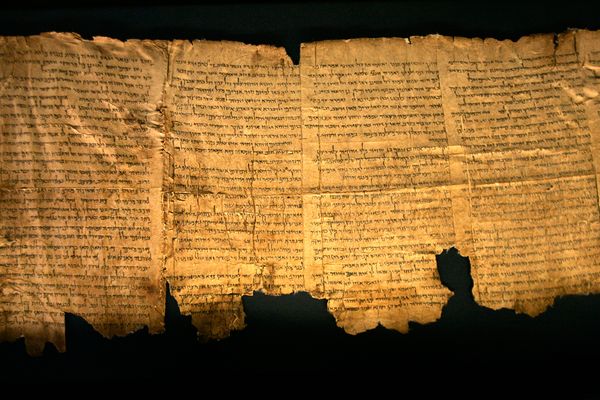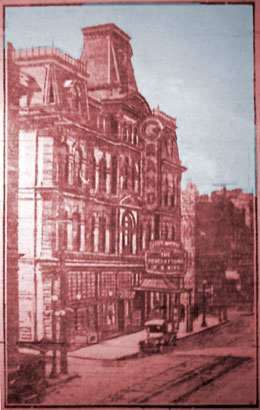 THIS story, highlighting Toronto’s fabled old Grand Opera House on Adelaide Street, has been reprinted from the Toronto Telegram of 1924.
THIS story, highlighting Toronto’s fabled old Grand Opera House on Adelaide Street, has been reprinted from the Toronto Telegram of 1924.
* * *
Glamor and Magic of the Great Old Days in Toronto, when Footlights Flickered While Real Brilliance Held the Stage
A THEATRICAL SERIES
Reminiscences of Thos. H. Scott, Sr., Who Was for Years Gas Engineer in the Old Grand Opera House and Illumined the Triumphs of Famous Actors and Actresses in Days Gone By
Grand Opera House!
The appeal of the name is universal. Every small town has or had one. Every small boy or girl looked upon it as the centre around which revolved the fame and glory of life. Nor did their elders miss its inspiration.
Into staid and prosaic scenes of humdrum existence, Grand Opera House performances carried the atmosphere of strange and wonderful people and places. Life was never brighter than on the nights when “the Grand” threw open its great doors to the multitude and gave the people hours of gaiety and delight, thrills to be stored away and borne in mind against the trials of the morrow.
GLITTER AND ROMANCE
Who cannot recall with lingering pleasure the twinkling lights, the gay music, the brilliant scenery — romance and adventure on the stage, restless anticipation in the galleries, dignity in the boxes, cheerful good nature on the floor — ovations and flowers for the leading lady, hisses for the villain, tears for the pathetic periods, frank admiration for the “matinee idol,” and, at the last, wild outbursts of whole-souled applause as Virtue triumphs over Evil, and the unruly world about us, having threatened defilement of our dearest convictions, suddenly comes right again before our eyes.
TORONTO’S OPERA HOUSE
Giants walked the boards in those days. Their names, like stars, shine still with undimmed brilliance; their personalities breathe from the shadows into which they departed a sweetness that most always makes life better for all who knew them, yes, for all who have but heard of them. For what color and charm remain about the theatre, sustaining its appeal from year to year, tribute must be paid to those who gave full measure of Art to uplifted and joyous audiences in the old days. Paucity of great talent on the stage today brings out into bolder relief such players as Booth, Keen, Irving, Terry Neilson and Modjeska and others of that glorious company which came to Toronto’s old Grand Opera House and left the imprint of their genious upon its traditions.
Who better than the man who lighted the way to the glittering caravansaries — the old time gas engineer who saw the whole pageantry from behind the scenes, year after year — can tell the story of the Grand Opera House of Toronto? Stage lighting is recognized today as a vital factor in the play’s success. Many producers, notably David Belasco, have carried it to a point of perfection unattainable in the old Grand when every incoming manager places his “gas plot” of lighting directions in the capable hands of Thomas H. Scott, Sr., who now has written for The Evening Telegram a colorful story of the old auditorium on Adelaide street.
EARLY IN “SHOW BUSINESS”
Leading up to his reminiscences of the old Grand Opera House, Mr. Scott, who has a remarkably retentive memory, begins his story with an account of how, as a Toronto boy over fifty years ago, he became aassociated with the show business, thus gaining experience for his interresting work in Toronto’s brilliant and historic Opera House. Here is his story.
When L. R. Lent’s circus arrived in Toronto in 1873, I got the “bug,” and being an independent young fellow with little visible means of support, and incidentally no ties, I joined the van as assistant in the cook tent. My main duties consisted in preparing the necessary fundamentals for mealtime, and this was a very important job. L. R. Lent’s circus travelled by railroad and consequently played only the big towns of the times.
THE SHOW “BUST”
We travelled in this way through the lower provinces of the Dominion and the Eastern States. At Atlanta, Georgia, we “busted up.” One hundred and fifty of us were marooned there without the means either to return to our native homes or to enjoy the climate of Georgia. Under these conditions, we were certainly not welcome guests. The citizens of Atlanta, proably fearing mob violence, secured a big out-of-use factory for us to sleep in, and they allowed us a quota of meat every day. Here, again, a knowledge of the culinary art made the cook tent boys very popular.
As there were liens against the show we received no pay, and when we received definite notice to this effect, the novelty of “being broke” wore off. Something had to be done. Some ambitious members of the company invented a metal polish which they peddled from door to door at twenty-five cents per bottle. They would polish up a doorknob or knocker, talk fast, make a sale and then hurry along. Haste was essential since the polish was only a temporary one. To vary the monotony of the meals, chicken stealing was resorted to by others.
A “CANDY BUTCHER”
The citizens finally awakened to the fact that our stay in their town promised no good to themselves. One of the show managers in New York had managed to have the liens laid even for a while, but still nobody received any money. As there was no immediate prospoect of Lent’s circus going on the road again, I went to Augusta, Georgia, and landed a job with the Great Eastern circus, then on that circuit, as “candy butcher.”
The thirst quenching part of the candy butcher’s business required but little capital. We had the usual tub of sparkling ade, with the lone piece of lemon floating on top. Neither flavor nor satisfaction equalled that of a glass of pure water. But water was free and lemonade served by the candy kitchen costs a nickel.
BECAME A “PROPERTY MAN”
I had been with this show for three weeks only when I heard that L. H. Lent’s show was being reorganized under the banner of “Wood and Andrew’s Great Southern Circus.” I went back to Atlanta and was fortunate enough to secure the berth as property man under the new management. During that winter and the spring of 1874 we travelled steadily, and I never saw a bed but slept on anything that was handy. One night, after the lions’ cage had been cleaned out and new straw put up, I slid underneath the cage and lay down on the old straw to catch forty winks. I woke up to find the circus had moved to the next town.
The lighting of the “big top” ten was accomplished by means of candles counter-sunk in a three-cornered trough, which were lighted and hauled up the centre poles. The “big top” was a very airy tent, in fact so airy that our candles were continually blowing out; consequently, during a performance we were never idle. About the time of the re-organization of the L. B. Lent’s Wood and Andrew’s interests, we substituted coal-oil lamps with screw bases, hoisting them up in the same manner as the candles. The glass afforded the lights protection from the wind, but they proved an irresistible attraction to the Ku Klux Klan. A body of these horsemen would fight right through the ticket wicket, shoot out all the lights in the place and, if they were not provoked, would gladly pay their admission on the way out. This was considered humorous — by them.
CIRCUS FARE
During our different engagements we had many runs-in with strangers seeking free admission or out for a night. Our S.O.S. call, “Hey Rube,” would bring our forces to the spot where the gang were starting trouble. Tent stakes were very handy weapons to stop this sort of thing and many a broken head resulted.
Our regular circus feed was not one to tempt an epicure. It consisted of apple jack brandy, sweet potatoes, corn bread, hominy, fat pork, the latter very rich in red corpuscle-making elements, and corn whiskey.
The circus of today travels in regular-appointed coaches over the railway with good berths, provided for the passengers to sleep in. Our experience was different. Mules pulled us over the mud, corduroy and sand roads of Georgia, Tennessee and South and North Carolina. Our wagons were equipped with dead axles. Thee were no springs and bad roads spelt disaster to some part of our equipment.
THE BIG “PUSH”
None of the contrivances utilized to pull vehicles out of bad holes today was available, so we used “Bismarck.” He was our biggest elephant. Bismarck could drink a small lake dry at feeding time, but he earned his drink in more ways than one. We travelled at night and the drivers had to work hard to keep our outfits out of the many holes. Many a time the wagon wheels would sink up to the hubs in mud. The heaviest cage, that containing the lions, was the almost nightly offender. When a wagon got stuck the cry would be, “go get Bismarck,” and Bismarck would come with ears flapping and an intelligent light in his eyes. He knew what he was needed for. One shove with his great head well down behind the wagon, and we would be on our way again. Travelling over such roads, we naturally lost many mules from broken legs and quite a few n—– boys suffered broken heads owing to their seeming carelessness.
WAY DOWN SOUTH
Some “jumps” we made would take a day and a half, owing to distance or delay by reason of an accident. The weather was warm. No wonder the negro mammy is beloved by black and white children. How many of our boys felt like adopting one because of their general hospitality. Many a day, travelling along the highway we felt no trepidation about stopping at the sunflower decked “shack” where a n—– mammy was singing to her pickanniny sleeping on her breast. Greeted with a cheerful “step inside and help yourself” motion from her hand, we stepped inside and drank the unadulterated corn whiskey tapped from a large keg. There was no set charge for this service.
IN NEW YORK
We closed the season in Savannah, Georgia and sailed from that town to old New York in the winter of 1874. I worked for House and Cushion’s Great London Circus at their winter quarters in Harlem, New York, taking care of trick ponies. In the spring of 1875 I went out with this show, having charge of four beautiful ring horses, Gipsy, Mack, Shamrock and a fine white stallion, Washington. The show got as far as Fall River, Mass., and there it “busted.” Feeling somewhat depressed over the instability of the circus business, I engaged as night cook in a New York restaurant for over a year. I then decided to come to Toronto, the “Queen City,” and here I became engaged at the Grand Opera House in 1877 as gas engineer.
RECALLS THE OLD DAYS
With a wealth of information and data in the form of programmes, press clippings, gas plots etc., which I have preserved in a scrap book, formerly a guest register for the Ruaell (?) House, and with a retentive memory, I would like you to travel back with me to the days when Adelaide Neilson, Ellen Terry, Henry Irving, Edwin Booth and other brilliant stars in the first blush of their triumph appeared before Toronto audiences on the footboards of the old Grand Opera House. For them I had the great privilege of assisting with the gas and calcium effects to round out such heavy offerings as “The Bells,” Shakespearean repertoire, etc., for I was the gas engineer!
These reminiscences of the Old Grand Opera House are gathered from the experiences of Thos. H. Scott, Sen., by his son, Thos. H. Scott, of Long Branch, Ontario. Many of the illustrations will be from actual souvenirs of the old days carefully kept by Mr. Scott for years.
(To be continued).
* * *
Photo captions
- THE GRAND OPERA HOUSE ON ADELAIDE STREET Around which have clustered memories of Toronto’s old-time romantic days, and where some of the Queen City’s most brilliant stars of the stage have scintillated before admiring audiences now far dispersed with the long-remembered beauties of by-gone years. (The play advertised on the marquee is “Revelations of A Wife.”)
- THOS. H. SCOTT, Sr. (as he appears today). Former gas engineer of the old Grand Opera House, and survivor of the tragically fatal fire there of over forty years ago. In the accompanying article he commences an interesting series of his reminiscences.
- THOS. H. SCOTT (as he appeared when managing the gas lighting system of the old Grand Opera House)
* See letter regarding this article on the Comments page. (This article was originally posted in 2011 and was reposted in 2023.)


